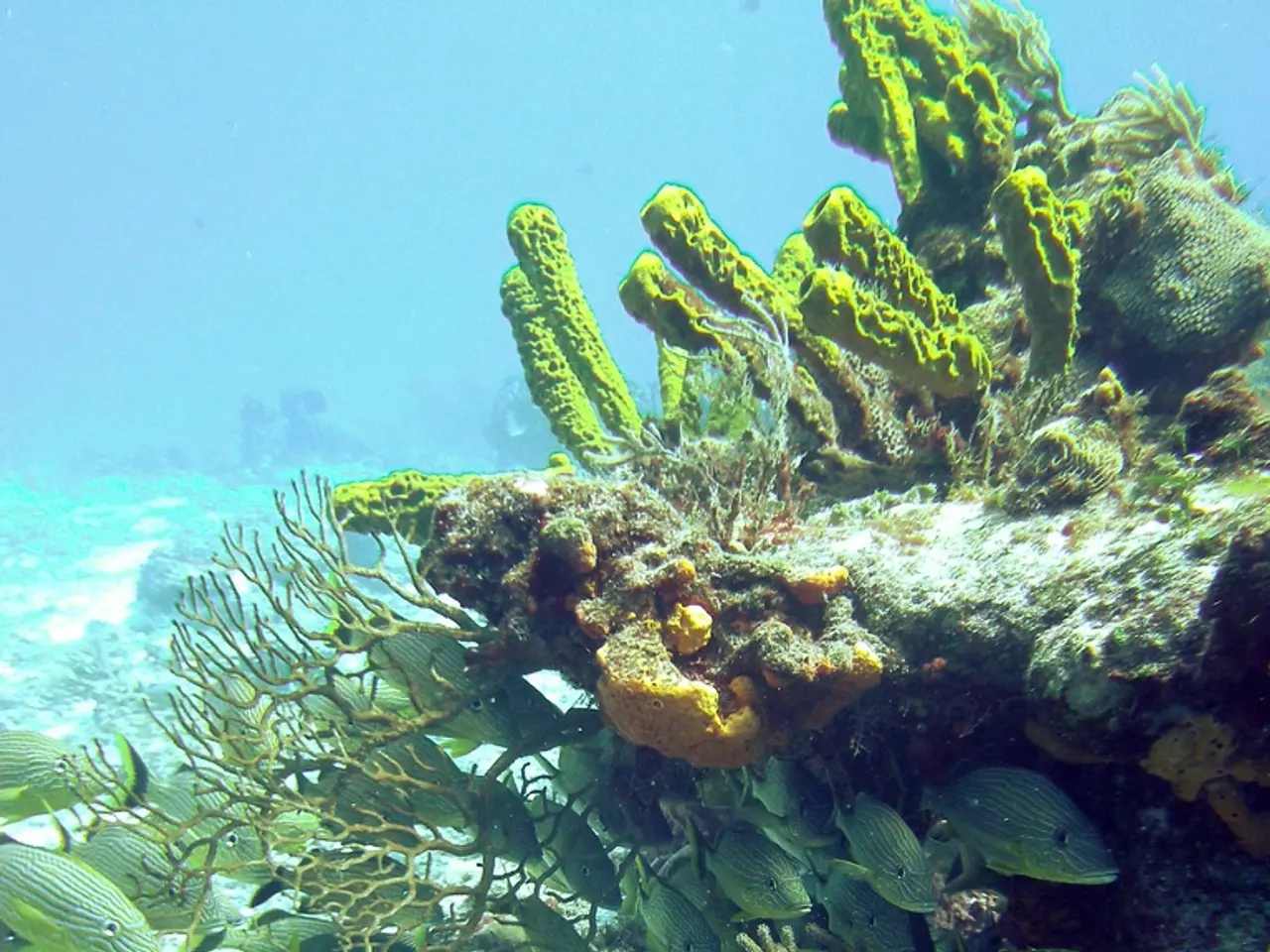Increased Chinese participation in marine research, showcased in the city of Nice
China Takes Center Stage at UN Decade of Ocean Science, Advocates for Ocean Conservation
China is increasingly playing a significant role in the UN Decade of Ocean Science, a 10-year initiative aimed at exploring the ocean from its surface to the deepest depths. This commitment was evident at the recent United Nations Ocean Conference (UNOC) in Nice, where high-level officials, academics, and civil society representatives gathered to discuss ocean governance and sustainable development.
Vice President Han Zheng, in his address at the conference's first plenary session, called for true multilateralism and the joint observation of international rules on the ocean to achieve Sustainable Development Goal 14 (SDG14). Han's emphasis on collaboration aligns with China's growing role in ocean conservation.
One of the highlights of China's participation was the unveiling of the China Global Ocean Fusion Dataset 1.0, a global ocean climate dataset. This dataset will undoubtedly contribute to our understanding of the ocean and its climate, furthering the goals of the UN Decade of Ocean Science.
China's marine science has been receiving considerable attention, and it is believed that Chinese scientists can contribute more to high sea protection. In this regard, China advocated for contributions to marine science, protecting the high seas, and achieving SDG14 at the UNOC.
Work is underway in China to update the fisheries law, addressing the use of harmful fishing gear like bottom-trawl nets. This move is a step towards ending destructive fishing practices, a pressing subject at the UNOC. China has also joined the Port State Measures Agreement, a global treaty to curb illegal fishing activities.
In a positive development, China has been making strides in curbing illegal, unreported, and unregulated fishing. Zhang from WWF has observed an improvement in China's efforts in this area.
As a key maritime power, China’s ratification of the High Seas Treaty, also known as the United Nations agreement on the Conservation and Sustainable Use of Marine Biological Diversity of Areas Beyond National Jurisdiction (BBNJ agreement), would be significant. The treaty aims to create a comprehensive framework to protect biodiversity, establish marine protected areas, conduct environmental impact assessments on human activities, and facilitate the sharing of genetic resources in international waters.
As of mid-2025, China has not yet ratified the High Seas Treaty but has publicly announced it is actively pursuing the domestic ratification process and has indicated intention to ratify it soon. The treaty requires ratification by 60 countries to enter into force; currently, 50-51 countries have ratified, with several major states, including China, still pending.
China’s ratification would help the treaty reach the critical mass needed for entry into force, enabling the implementation of conservation measures globally. It would also enhance international cooperation and compliance with the treaty’s provisions. Once in force, the treaty’s mechanisms can begin operating effectively.
In addition to its commitment to the High Seas Treaty, China plans to launch over 100 bilateral and multilateral cooperation programs to support developing countries, including small island states, in achieving the UN development goals in the next three years. China will provide 5,000 placements for people from such countries to be trained in sustainable marine issues.
The US, which led by special presidential climate envoy John Kerry advocated for conserving 30% of the ocean at the previous UNOC in 2022, only sent observers to the conference this time. Despite this, the conference was a testament to China's growing role in ocean conservation and its commitment to sustainable marine resource management worldwide.
Sources: [1] United Nations Ocean Conference (UNOC) Official Website [2] China Dialogue [3] South China Morning Post [4] Greenpeace East Asia [5] World Wildlife Fund (WWF) China
- The UN Decade of Ocean Science initiative, backed by China, aims to delve into the ocean's mysteries from its surface to the deepest trenches, promoting biodiversity and sustainability (SDG14).
- During the UNOC in Nice, officials, academics, and civil society representatives discussed ocean governance and sustainable development, with China advocating for a joint observation of international rules.
- Vice President Han Zheng stressed the importance of multilateralism and true collaboration to achieve SDG14, aligning with China's growing role in ocean conservation.
- The China Global Ocean Fusion Dataset 1.0, a global ocean climate dataset, was introduced by China at UNOC, contributing significantly to our understanding of the ocean and climate change.
- Chinese marine science is gaining global attention, with scientists expected to contribute more to high sea protection and the goals of the UN Decade of Ocean Science.
- Efforts are underway in China to update fisheries law, targeting harmful fishing gear, a move towards ending destructive fishing practices and achieving the objectives of the UNOC.
- China has ratified the Port State Measures Agreement, a global treaty to curb illegal fishing activities, showing commitment to ocean sustainability.
- China's ratification of the High Seas Treaty, also known as the BBNJ agreement, would create a comprehensive framework to protect biodiversity, establish marine protected areas, and regulate human activities in international waters.
- As of mid-2025, China has not yet ratified the High Seas Treaty but is actively pursuing domestic ratification and has indicated plans to ratify it soon.
- China's ratification could help the treaty reach the necessary critical mass to enter into force, enabling global implementation of conservation measures.
- In the coming three years, China plans to launch over 100 bilateral and multilateral cooperation programs to support developing countries in achieving the UN development goals, offering 5,000 placements for training in sustainable marine issues.
- While the US sent only observers to the UNOC this time, the conference highlighted China's growing role in ocean conservation and commitment to sustainable marine resource management globally.




